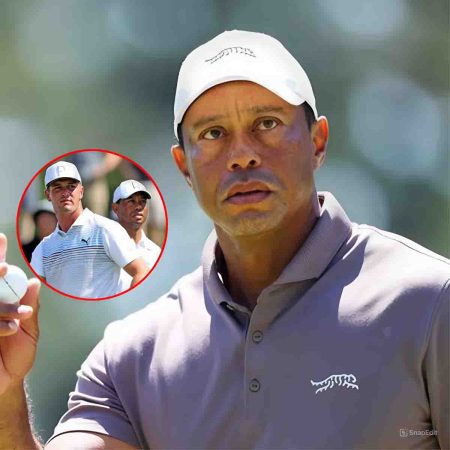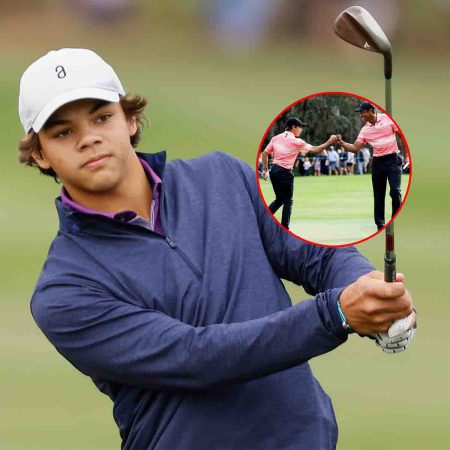The University of Texas fired Longhorns men’s basketball head coach Chris Beard for cause on Thursday, less than a month after his Dec. 12 arrest on third-degree domestic violence charges after an altercation with his fiancée.
Beard was offered the chance to resign, according to documents obtained by the American-Statesman under the Freedom of Information Act, but he chose not to.
Perry Minton, Beard’s lawyer, wrote Texas, saying, “I want to be on record as emphatically stating, and herein memorializing, that Coach Beard has not done anything to violate any provision of his contract with the University of Texas.”
Texas athletic director Chris Del Conte informed Beard of the school’s decision to terminate him Thursday and in a statement released later said, “This has been a difficult situation that we’ve been diligently working through. We thanks Coach Rodney Terry for his exemplary leadership both on and off the court at a time when our team needed it the most. We are grateful he will remain the acting head coach for the remainder of the season.”

Beard, 49, was in his second season as head basketball coach. He had been suspended without pay by the university since Dec. 12 after his fiancée Randi Trew called Austin police and told them Beard had strangled her, bit her and caused her abrasions. He was booked in the Travis County jail and released later that day after posting $10,000 bail.
Beard, who was the 2019 Associated Press national coach of the year, signed a seven-year contract with Texas in April 2021 for around $5 million a year. His Texas record was 29-13, including the school’s first NCAA Tournament win since 2014 last season.
Texas associate head coach Rodney Terry, who worked as the head coach at Texas-El Paso and Fresno State for 10 years before joining Beard’s staff, has served as the Longhorns’ acting head coach for the last six games. Texas is 12-2 and ranked No. 6 in this week’s Top 25 poll. Texas has gone 5-1 without Beard.

What led to the Chris Beard’s arrest?
Police said they were dispatched to Beard’s house in his Tarrytown neighborhood around 2 a.m. on Dec. 12 after Trew called 911 to say the coach had attacked her.
According to the arrest affidavit, Trew said the couple had been arguing about their relationship for several days. She told police she approached Beard in a guest bedroom and, after Beard ignored her, she became frustrated and took his eyeglasses from his hand and broke them. She also told police that she “did not feel safe.”
Even though Trew later clarified that Beard may have acted in self-defense and had never strangled her, Beard has never spoken publicly about the episode. Her statement was given to the American-Statesman and the Associated Press.
Minton issued a statement after the arrest saying Beard is innocent and that the woman wanted all charges dismissed.
The university said it was reviewing Trew’s statement as part of its internal investigation into the matter. Beard faces a hearing on Jan. 18. And the Travis County District Attorney’s Office confirmed on Wednesday that it is reviewing the case to determine whether to proceed with it.

Chris Beard’s history with Texas
Beard, a Texas graduate, returned to the school 21 months ago after leading Big 12 rival Texas Tech to historic success, including a national runner-up finish at the 2019 NCAA Tournament in an overtime loss to Virginia.
After a promising first season at Texas under Beard, when the program snapped an eight-game losing streak in the NCAA tournament with a win over Virginia Tech and a close loss to Purdue in the second round, the Longhorns have been highly ranked all season and have posted marquee wins over No. 2 Gonzaga and No. 7 Creighton.
The Longhorns suffered their first loss under Terry this week, a 116-103 home setback to Kansas State — a team picked to finish last in the Big 12, a league expected to send as many as nine if not all 10 teams to the tournament in March.
Beard last coached a game on Dec. 10, a win at home against Arkansas-Pine Bluff.
In the days after the arrest, Texas officials invited Beard and his representatives to lay out a case for why they should not fire him, according to multiple sources familiar with those conversations.
The school is already dealing with the fallout of a pending family violence case against men’s basketball player Arterio Morris, a freshman guard from Dallas who was arrested last summer after an incident with a former girlfriend. Morris, who has a court appearance next month in Denton County, has appeared in all 13 games this season.
Beard’s ability to challenge decision
Under the contract between Beard and the university, the university has the right to fire Beard for cause without having to pay him after the termination date under a variety of circumstances. Among them are:
— “A serious or major violation or a pattern of violations, whether intentional or negligent, by Head Coach of any Governing Athletics Rules or University Rules, which violation may, in the reasonable, good faith judgment and discretion of the Athletics Director, reflect adversely upon the University, its athletics program, or The University of Texas System …”
— “Any conduct (a) that the University administration reasonably determine is clearly unbecoming to a Head Coach and reflects poorly on the University, the Program, or The University of Texas System; or (b) resulting in a criminal charge being brought against Head Coach involving a felony, or any crime involving theft, dishonesty, or moral turpitude”
The contract does not include any language concerning an administrative appeal or review process. General university policies describe a grievance procedure, but the procedure culminates in an appeal to “the appropriate vice president,” who, in Beard’s case, presumably would be athletics director Chris Del Conte, whose formal title is vice president and athletics director.
The contract between Beard and the university, however, does include certain legal protections for the school and its employees.
This provision says that in any instance of termination “for cause or without cause,” each party “waives any claim against the other … for consequential damages by reason of any alleged economic loss, including, without limitation, loss of collateral income, deferred income, loss of earning capacity, loss of business opportunity, loss of perquisites, loss of fees from speech, camp or other outside activity, or damages allegedly sustained by reason of alleged humiliation or defamation resulting from the fact of termination, the public announcement thereof …”
In addition, it says that in the event of termination “for cause, without cause or otherwise” Beard’s remedies are limited to those provided under the contract “and shall not extend to injunctive relief.”
Source: usatoday.com








